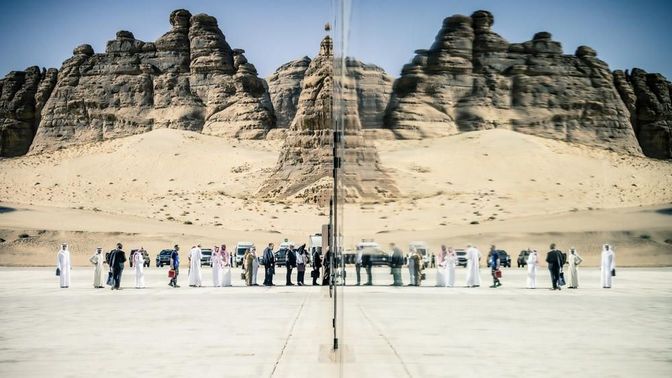

No future without them. MSC co-organizes NATO 2030 Youth Summit
On November 9, 2020, NATO, in cooperation with the Munich Security Conference, organized its first NATO Youth Summit. In the framework of the NATO 2030 initiative, more than 900 young leaders from over 70 countries came together virtually to discuss NATO’s future with the alliance’s leaders.
Seeking to chart a future vision for the transatlantic alliance in 2030, the North Atlantic Treaty Organization (NATO), together with the Munich Security Conference (MSC) invited emerging young leaders under 35 to the first NATO Youth Summit. More than 900 young people from over 70 countries came together virtually. In a highly interactive format, they examined, together with heads of state and government, and ministers, from various NATO countries, the multitude of challenges that the alliance faces. The participants could choose and switch between three channels, covering the parallel sessions and take part in the discussions through live-polls. The event was also live-streamed on the MSC website. The recordings of all sessions on our YouTube channel and in our media library:
NATO 2030 is the chance for you to step up. And safeguard your future. Your freedom. Your Alliance.Jens Stoltenberg•Secretary General, NATO
Along the lines of the three pillars of the NATO 2030 initiative – keeping NATO strong militarily, making it stronger politically and taking a more global approach – the diverse set of participants engaged with NATO’s Secretary General Jens Stoltenberg and Allied leaders such as the President of the Republic of Estonia, Kersti Kaljulaid, Prime Minister of Canada, Justin Trudeau, and Chancellor of the Federal Republic of Germany Angela Merkel, among others.
During the discussions, the young leaders offered a concerned outlook of how the world would look like in 2030: fragmented, polarized and divided. They pointed out that the alliance is facing a multitude of serious challenges ranging from climate change over disruptive technologies to geopolitical tensions and democratic backsliding. To address these polycrises NATO will have to become – as one participant put it – a “creative super adopter”.
More than ever before we are dependent on partners to address multifold crises.Gyde Jensen•Chairwoman of the Committee on Human Rights and Humanitarian Aid, FDP Parliamentary Group, German Bundestag
Echoing these observations, Wolfgang Ischinger, Chairman of the MSC, recalled that after the fall of the Berlin wall – 31 years ago from the day of the summit – peace seemed at hand. World leaders thought they could move towards mutual security, but since then dramatic changes have created extreme turbulences in the world, as became clear during the summit. Today we are facing global challenges that often defy the traditional understanding of security and require inclusive solutions. Such non-traditional challenges – like non-state actors, disinformation and climate change – became a major focus of the discussions. Asked, what they think will be the biggest risks for NATO in 2030, 56 percent of the participants answered in a live poll “cyberattacks, misinformation campaigns, and climate-related disruptions.”
Climate change in particular featured heavily throughout the event both as a threat to NATO’s operations and as a challenge, the alliance has to address as a major climate actor itself. Participants suggested that NATO should encourage member states to adapt their climate policies and introduce joint standards for climate protection. Joint action like that, could also serve to produce a “stronger political alliance” answered 48% of the participants in another live-poll.
NATO should not only climate-proof but Paris-proof its policies. NATO, as an alliance, needs to act in line with the Paris Agreement and the UNFCCC.Luisa Neubauer•Climate Activist, Fridays for Future
To develop solutions to these pressing problems, the Secretary General announced the establishment of the NATO 2030 Young Leaders, a group of 14 emerging leaders from across the Alliance who will provide input to inform his recommendations for NATO 2030. The participants were chosen from a diverse set of backgrounds, including politics, military, academia, private industry and non-governmental organisations, to represent the diversity of the alliance and to address the multi-sectoral challenges that it faces.
With this Summit, the MSC co-hosted its fourth high-level NATO event. Following previous “NATO Engages” events in Brussels in July 2018, Washington in April 2019 and London in December 2019, this was the first ever NATO Youth Summit. The MSC is committed to provide young leaders a platform, including through the Munich Young Leaders Program, the Junior Ambassadors Program and the John McCain Dissertation Award.







